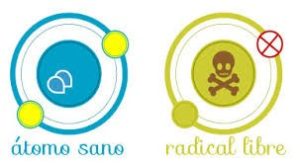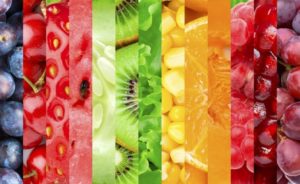Do our skin cells oxidize?
07 May, 2018
Yes, our cells oxidize, those of our skin and those of our body. This oxidation is part of the aging natural and gradual.
Oxygen is irreplaceable to health, but under certain conditions it also causes oxidation in cell membranes, making many of them Free radicals.
Inevitably the passage of time is leaving a mark on our skin. The first thing we see are expression or gestural lines to which other signs are added such as loss of volume and elasticity due to dermal atrophy, deeper spots and wrinkles.
And even if we do not believe it, the first signs of aging begin from the age of 25 !!! and so many internal factors influence.
Among the internal causes is: biological age and genetics. It is known, for example, that clear and sensitive skins with phototypes 1 and 2 are more predisposed to presenting at an early age. These factors are inevitable and we can do little or nothing. But with the external factors that influence our aging we can fight and somehow stop this mechanism.

 The three most important vitamins in the free anti -artradical fight are:
Vitamin C--- Ascorbic acid. We find it especially in citrus, kiwis, berries, peppers, tomatoes, parsley. Better in raw so as not to degrade vitamin.
Vitamin A--- Betacarotene. Orange carrots, fruits and vegetables such as orange, pumpkin, apricot and others such as spinach, cabbage, etc.
Vitamin E--- Tocoferol. Vegetable oils such as sunflower, linen, wheat germ, nuts.
The three most important vitamins in the free anti -artradical fight are:
Vitamin C--- Ascorbic acid. We find it especially in citrus, kiwis, berries, peppers, tomatoes, parsley. Better in raw so as not to degrade vitamin.
Vitamin A--- Betacarotene. Orange carrots, fruits and vegetables such as orange, pumpkin, apricot and others such as spinach, cabbage, etc.
Vitamin E--- Tocoferol. Vegetable oils such as sunflower, linen, wheat germ, nuts.
Oxidation = Aging
Free radicals favor oxidative stress and thus accelerate skin aging.
What are the free radicals?
They are very reactive and unstable chemicals that introduce oxygen into the cells producing the oxidation of their parts, alterations in the DNA, cell lining membranes, protein, lipids, and thus cause aging and many other systemic pathologies such as: heart disease, cancer , Alzheimer, arteriosclerosis, diabetes, rheumatoid arthritis, etc. They are atoms that have a free electron (e-), disappeared with the ability to mate, so they are very reactive. These free radicals travel our body trying to steal an electron to the stable molecules, in order to achieve their electrochemical stability. Once the free radical has managed to steal this electron that needs to mud its free electron, the stable molecule that gives it to it in turn becomes a free radical because it is left with an electron disappeared, thus starting a true chain reaction that destroy our cells. The normal organism processes produce free radicals, such as food metabolism, breathing and exercise. We are also exposed to environmental external elements that create free radicals, such as industrial pollution, tobacco, UV radiation, medications, chemical additives in different processed and pesticide foods, just to name the most common and known. Free radicals live microseconds and react with everything they have by their side causing great molecular damage. But not everything is bad, in fact, our own body manufactures them, in moderate quantities, to defend ourselves with bacteria and viruses and in this case they are easily neutralized by our body. The problem for our health occurs when our body has to endure an excess of free radicals.
Antioxidants and health: scientific evidence
An antioxidant is a molecule capable of preventing or delaying oxidation (loss of e-) of other molecules, generally biological substrates, such as lipids, proteins or nucleic acids. Antioxidants are true electron donors. In this way they can break the chain reaction of free radicals by sacrificing their own electrons to feed them and without becoming free radicals. Antioxidants are the way in which nature gives cells the appropriate defense. These important micronutrients cause our body to be able to resist aging caused by daily exposure to polluting substances.Can we contribute to our body these antioxidant substances from abroad?
Yes we can and that is through our diet and of the cosmetics that we apply. Antioxidants are in nature and are found in vitamins, so it is very important that we always keep in mind when feeding the good choice to maintain our body in good health. The three most important vitamins in the free anti -artradical fight are:
Vitamin C--- Ascorbic acid. We find it especially in citrus, kiwis, berries, peppers, tomatoes, parsley. Better in raw so as not to degrade vitamin.
Vitamin A--- Betacarotene. Orange carrots, fruits and vegetables such as orange, pumpkin, apricot and others such as spinach, cabbage, etc.
Vitamin E--- Tocoferol. Vegetable oils such as sunflower, linen, wheat germ, nuts.
The three most important vitamins in the free anti -artradical fight are:
Vitamin C--- Ascorbic acid. We find it especially in citrus, kiwis, berries, peppers, tomatoes, parsley. Better in raw so as not to degrade vitamin.
Vitamin A--- Betacarotene. Orange carrots, fruits and vegetables such as orange, pumpkin, apricot and others such as spinach, cabbage, etc.
Vitamin E--- Tocoferol. Vegetable oils such as sunflower, linen, wheat germ, nuts.
Maystar Cosmetic and antioxidants
In Maystar Cosmetics we have several lines, of facial treatment, indicated for different skin types, but we must highlight the presence of antioxidant substances in each of them, for example:- Synergy Lift: Oryza Sativa
- Whitening Care: Vitamin C
- Caviar Therapy: Escualeno
- Cellular Expression Vitamin C: Vitamin C, Boswellia Serrata extract, African birch crust
- Hydrovect O2: Plankton Excerpt
- Glycosure Care: Vitamin E
